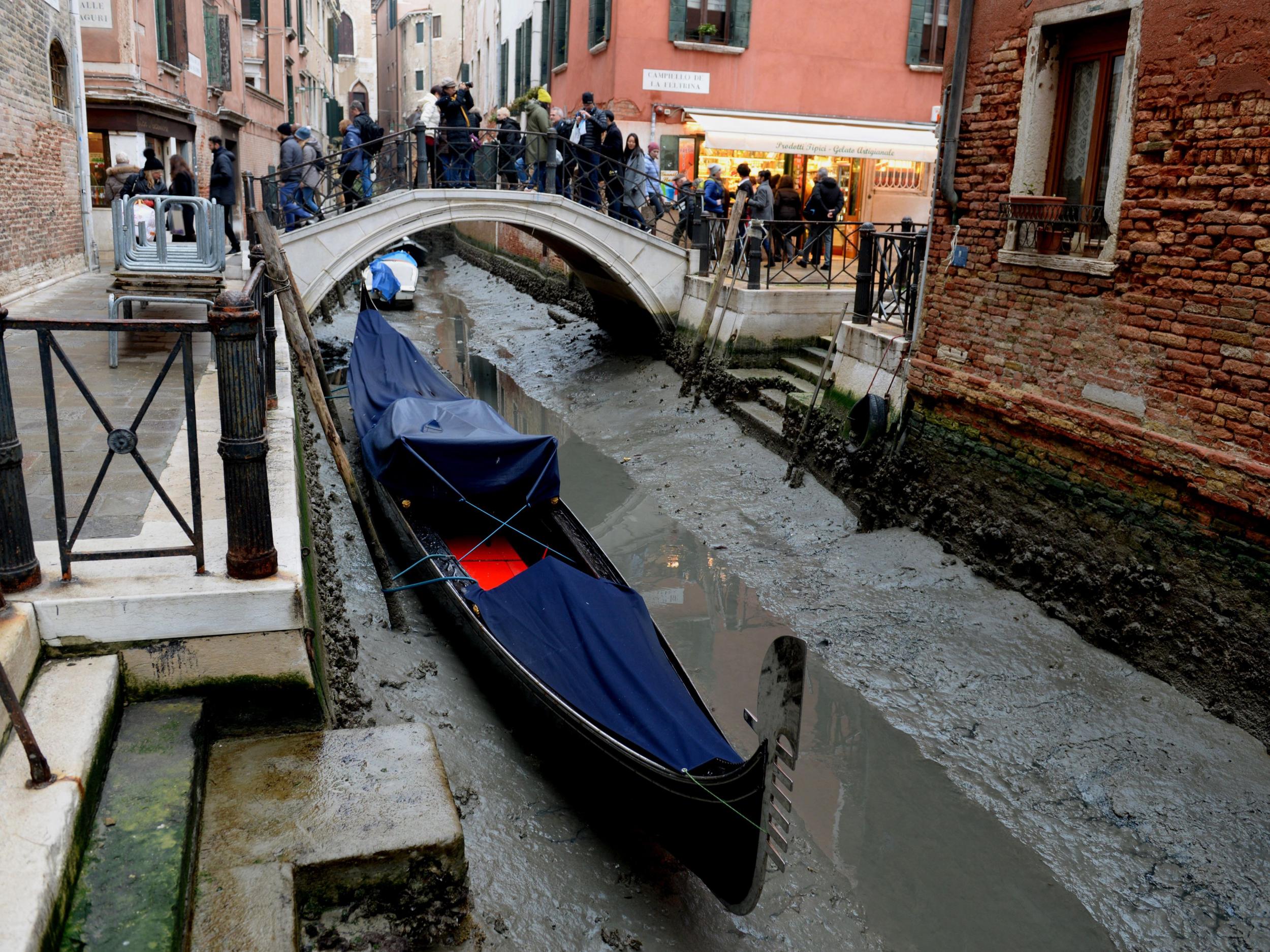Venice canals dry up after super blue blood moon and low rainfall cause water levels to drop
Rain – and normal water levels – return on Friday

Low tides caused by the super blue blood moon, combined with a lack of rain, have caused water levels in Venice to drop by more than 60cm, beaching boats and gondolas.
The city’s canals have been turned into muddy channels by the rare weather phenomenon, which saw some waterways closed entirely.
The Grand Canal, one of Venice’s major traffic corridors, remained open for the city’s water buses, which had been diverted from smaller channels.
Venice is more often afflicted by flooding caused by high tides – or acqua alta – in the northern Adriatic, which leaves landmarks including St Mark’s Square submerged.
However, this is not the first time the city has experienced a significant drop in water levels. Nor is a 60cm drop a record.
In 2016, water levels fell by 66cm, while in 2008 and 1989 levels dropped by 90cm.
The record was set in 1934, when an extremely low tide saw water levels drop by 121cm.
Italian forecasters were quick to correct people on social media who suggested the latest drop was down to a drought.
Water levels were due to return to normal on Friday as the rain returns.
Wednesday’s rare super blue blood moon was visible across much of the world, with skywatchers treated to a partial lunar eclipse.
The phenomenon triggered a king tide that inundated islands in the Torres Strait between Australia and Papua New Guinea, while Sydney saw tide swells of 2 metres.
A report published last year warned that Venice was at risk of chronic flooding which could leave it permanently underwater by the end of the century.
Researchers said the Mediterranean Sea is forecast to rise by up to 140cm before 2100, flooding 5,500sq kilometres of coastal plains.
Subscribe to Independent Premium to bookmark this article
Want to bookmark your favourite articles and stories to read or reference later? Start your Independent Premium subscription today.

Join our commenting forum
Join thought-provoking conversations, follow other Independent readers and see their replies